
WHEN LAXMAN NARASIMHAN was hired to be the next Starbucks CEO in September, he joined a club that includes the chief executives of some of America’s biggest and best-known companies—Brian Cornell of Target, Chris Kempczinski of McDonald’s, Ed Bastian of Delta Air Lines, Al Kelly Jr. of Visa, Ron Coughlin of Petco, Lauren Hobart of Dick’s Sporting Goods, Vivek Sankaran of Albertsons, Dave Kimbell of Ulta Beauty, Mary Dillon of Foot Locker, and Ann Mukherjee of Pernod Ricard North America.
What do these leaders have in common? They all spent significant time rising through the ranks of the same company. But they aren’t alums of the expected academy companies” known for turning out leadership talent, such as Procter Gamble, nor a buzzy tech pioneer famous for its management culture.
No, these chief executives earned their chops selling fizzy drinks, hummus, and chips at PepsiCo.
Formed back in 1965 when the Pepsi-Cola company and Frito-Lay merged, PepsiCo has produced 16 current Fortune 500 CEOs, an analysis by Fortune found. We looked at companies whose alumni now lead at least five Fortune 500 companies, and found that PepsiCo is one of the most proficient corporations when it comes to leadership development, trailing only the management consulting firm McKinsey and General Electric. And there are hundreds more C-suite executives with PepsiCo pedigrees in the Fortune 500, as well as CEOs outside the Fortune 500, like those of Petco or Boston Beer Co.
In other words, PepsiCo, which brings in 80 billion a year in revenue, is a veritable CEO factory.
This story is from the {{IssueName}} edition of {{MagazineName}}.
Start your 7-day Magzter GOLD free trial to access thousands of curated premium stories, and 9,000+ magazines and newspapers.
Already a subscriber ? Sign In
This story is from the {{IssueName}} edition of {{MagazineName}}.
Start your 7-day Magzter GOLD free trial to access thousands of curated premium stories, and 9,000+ magazines and newspapers.
Already a subscriber? Sign In
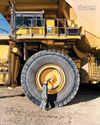
THE NEW GOLD RUSH
Gold prices have soared amid global uncertainty and a central-bank-driven buying spree. But this time, the gold mining industry looks very different.

A New Season for Giving
As the PGA TOUR kicks off its 2025 season alongside its sponsors in Hawai'i, the organization is continuing to make an impact in local communities.

WELCOME TO ELONTOWN, USA
The small town of Bastrop, Texas (pop. 12,000), has become a home base for Elon Musk's business empire. What comes next is anyone's guess.
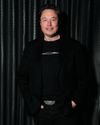
100 MOST POWERFUL PEOPLE
Our inaugural, authoritative ranking of the leaders whose innovation and impact have elevated them to the top of the business world.

ARE CEO SABBATICALS THE ULTIMATE POWER MOVE?
WHEN VENTURE capitalist Jeremy Liew and his wife were dating, they talked about how one day they would take a year to travel the world. \"That's how we'd know we'd made it,\" Liew says.
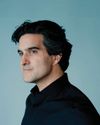
WHAT ARE THE BEST METRICS FOR MEASURING A STARTUP'S POTENTIAL?
IN HIS 2012 ESSAY \"Startup = Growth,\" Paul Graham talks about a 5% to 7% weekly growth rate as table stakes for startup success. If you're growing 10%, he says, you're doing \"exceptionally well.\"

TECH POLYMARKET'S ELECTION ACCURACY MADE SHAYNE COPLAN A STAR-BUT AN FBI RAID POINTS TO TROUBLE AHEAD
IN NOVEMBER, Shayne Coplan had a week he'll remember for the rest of his life: He got a phone call from the highest echelons at Mar-a-Lago. He went on TV for the first time. And his New York City apartment was raided by the FBI.
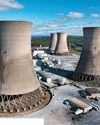
WHY BIG TECH IS THE NUCLEAR INDUSTRY'S NEW BEST FRIEND
OVER THE PAST several years, Big Tech firms like Google and Microsoft have trumpeted ambitious plans to go carbon-neutral, or even carbon-negative, by 2030. But then the generative-AI boom came along and threw a giant wrench in their plans.

WHAT PALMER LUCKEY, THE MAN REVOLUTIONIZING WARFARE, IS AFRAID OF
PALMER LUCKEY, the founder of the $14 billion Al-powered weapons startup Anduril, has become the face of change in the defense industry.
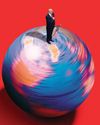
GLOBAL BUSINESS BRACES FOR TRUMP 2.0
AROUND THE WORLD in 2024, voters chose change: in South Africa, France, Britain, and Japan. But nowhere does the anti-incumbent trend matter more than in the United States.